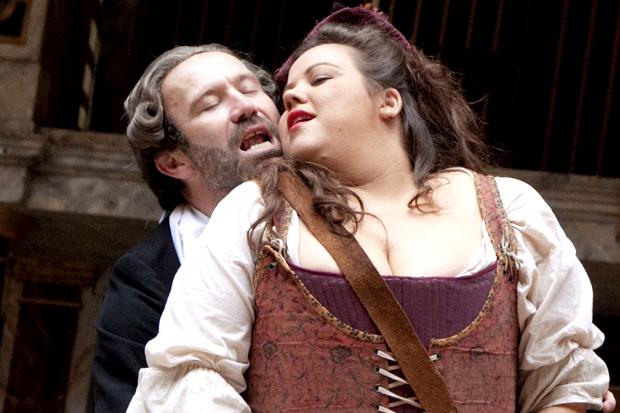Guardian Interview
Shakespeare’s Globe has just commissioned its first ever play by a woman. What does Nell Leyshon have planned?
(interview by Andrew Dickson for The Guardian, February 2010)

If playwright Nell Leyshon is overawed by the prospect of making history, she’s hiding it well. It was announced this week that Leyshon had been commissioned by Shakespeare’s Globe to write a drama for the theatre – the first woman to be asked since its opening in 1599. But Leyshon has something else on her mind first: body image. She’s working on play about the subject for the National Theatre, which has joined her with a group of teenagers in Plymouth. As we speak, she’s scurrying through an industrial park, attempting to find the rehearsal space.
“I come down for a week and write a play,” she says brightly. “It is a bit terrifying, because I’ve sworn I’ll finish it by Friday. The kids don’t quite believe me. But I will – because there’s other things I have to do.”
There is the small matter of finishing that historic commission. The play she’s writing for the Globe is entitled Bedlam, an 18th-century costume drama set in a fictionalised version of the notorious lunatic asylum. It will be a freewheeling mix of love and insanity; a romance infused with tragedy that will no doubt use the Globe’s unique properties – that large, open-air auditorium, Shakespeare’s circular “wooden O” – to full-throated effect. A fitting debut for a theatre with a rambunctious reputation.
“I thought I wasn’t ready to write a big story for a big space,” Leyshon says. “Playwrights now often write very small, very intense plays. You don’t get the opportunity to really stretch yourself, to be really brave. The Globe is much more extravagant to write for, much more extrovert. You have to embrace the nature of the space, and the nature of the audience.”
And there’s all that history, too. When the original Globe burned down in 1613, it was illegal for women to appear on stage, never mind write plays. Western theatre hasn’t moved on as much as it should, believes Leyshon. “When I started writing for theatre, people would say, ‘She’s a woman writer,’ and I didn’t understand that. You’d never say, ‘She’s a woman novelist’ or, ‘She’s a woman journalist.’ But in theatre, you do.”
(read the full interview)